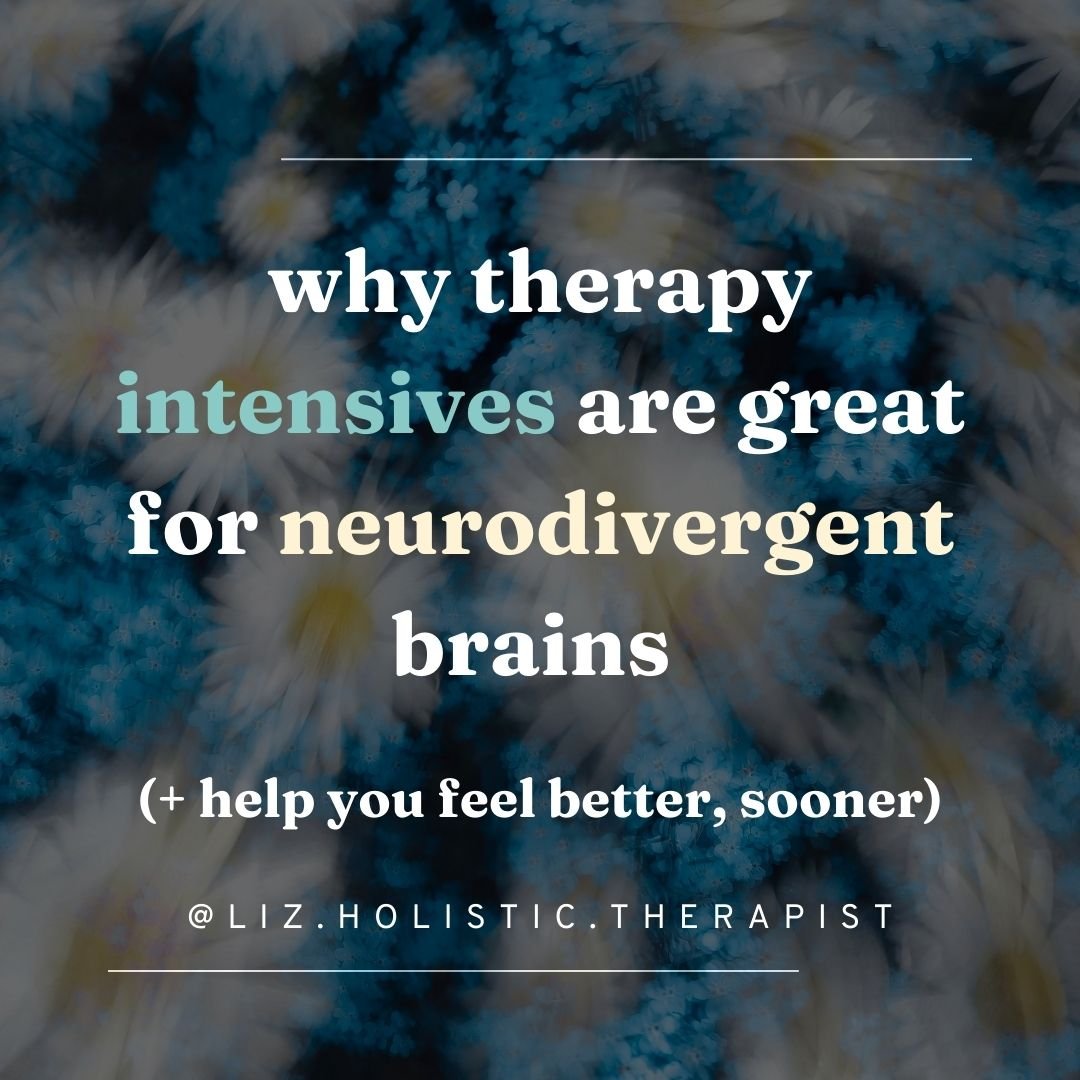Liz Zhou
Holistic Trauma Therapist, Coach, Speaker
Helping highly sensitive, neurodivergent adults & couples.
BLOG
Why Therapy Intensives are Great for Neurodivergent Brains
If you’re neurodivergent (autistic, ADHD, highly sensitive) and traditional therapy hasn’t quite worked for you, a therapy intensive could be a helpful alternative. Intensives are a form of short-term, accelerated therapy, using powerful modalities like Internal Family Systems, Brainspotting, and EMDR to heal the nervous system.
Healing Complex Trauma as a Neurodivergent Person
Let’s explore the 4 phases of CPTSD recovery. Here’s why you might feel worse before you feel better, and why you might feel more neurodivergent (more autistic, more ADHD) as you heal from complex trauma.
Unmasking Autism: 6 Common Experiences of Late-Diagnosed Autistic Women
Many women discover their autism later in life. This delayed diagnosis is often due to societal misconceptions, gender bias, and the tendency to mask autistic traits. Let’s explore the common experiences of women who’ve been labeled “quiet,” “shy,” “sensitive,” and “different.”
EMDR Therapy for Autistic Adults | A Neurodiversity-Affirming Perspective
Is EMDR therapy for autistic people different than EMDR for non-autistics? The answer is more complicated than you might think. An autistic therapist shares how neurotypes influence the way that we process trauma — and why EMDR can be a great fit for neurodivergent brains.
Complex Trauma Recovery: The Benefits of IFS and EMDR Therapy
How do you go from realizing you have complex trauma to actually healing from it? Learn how trauma-focused modalities like Internal Family Systems and Eye Movement Desensitization & Reprocessing can help you get to the other side of complex trauma — toward more fulfilling relationships & connection with your authentic Self.
What is Neurodiversity-Affirming IFS Therapy?
Learn why Internal Family Systems therapy can be a great fit for neurodivergent people (Autistic, ADHD, HSP) seeking to heal trauma, unmask, and connect with their authentic selves. A neurodivergent therapist explains how IFS works.
“Autistic Person” vs “Person with Autism”: What’s the Difference? | A Neurodivergent Therapist’s POV
As the mental health field updates its understanding of autism to be more affirming, more and more adults are realizing that they’re autistic – leading to a growing community of late-diagnosed neurodivergent people. Let’s explore the difference between identity-first and person-first language, and why many members of the Autistic community prefer identity-first language.
The Link Between Trauma and Neurodivergence
There’s a reason why autistic, ADHD, and other neurodivergent people tend to experience higher rates of anxiety, depression, PTSD, and complex trauma. Let’s explore how stigma, misunderstanding, and lack of accommodations in our neurotypical society impact mental health — and what we can do about it.
Why Talk Therapy Isn’t (Always) Helpful for Neurodivergent People (+ What to Try Instead)
Let’s face it: traditional talk therapy wasn’t designed with neurodivergent brains in mind (autism, ADHD, high sensitivity). If you’re feeling stuck or unheard, consider alternative approaches like EMDR, IFS, and psychedelic therapy.
What Your Bones Know: How to Heal Complex Trauma and CPTSD
Healing is a journey, not a destination, and it involves weaving together different threads of support. Through the power of relationships, play, community, and therapy, it’s possible to heal complex trauma (CPTSD).










